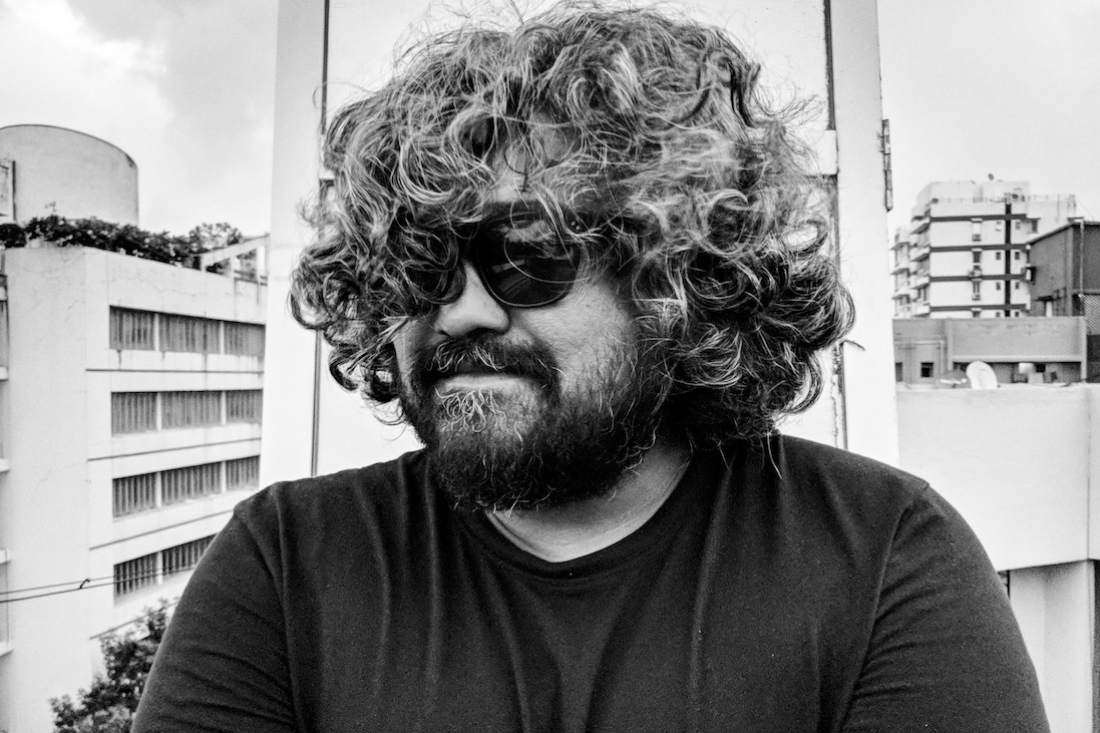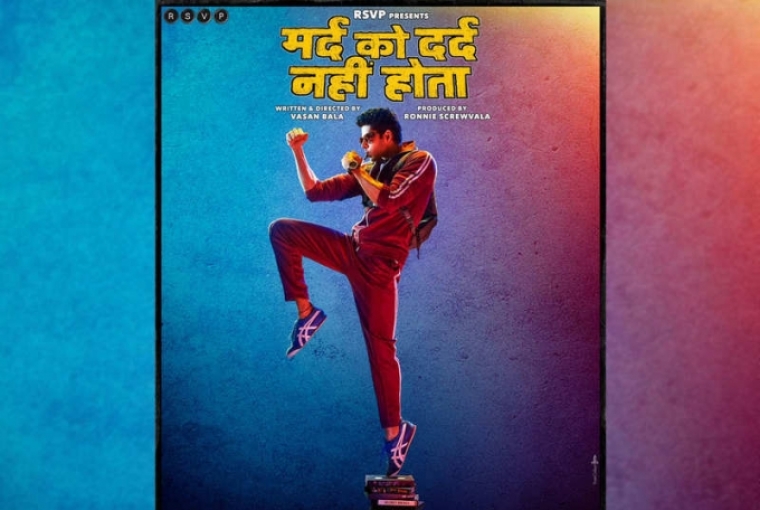

His film is called Mard Ko Dard Nahi Hota, but filmmaking has not been a painless journey for Vasan Bala. A name to reckon with from some strong cinema via Peddlers, Raman Raghav 2.0 and Bombay Velvet, Vasan’s new film is light, relatable and easy. It’s journey, he shares, wasn’t.
When did the word cinema become significant?
It happened when I was watching Django (1966). The scene was Franco Nero pulling a coffin over opening credits. It stayed with me and that somehow set me on my journey in filmmaking, perhaps freeing a side of me I had until then not known.
How have you evolved as a filmmaker over the years?
There is technical growth and then there is storytelling growth. The indicator of growth is how little you need to tell a story. Both technically, and story-wise. Because initially, you want to showcase a lot of technique, you want to write in a lot of things. Your evolution will eventually be how simpler you get both with technique and storytelling. That is what I believe right now, may be that changes tomorrow.
What inspired Mard Ko Dard Nahi Hota?
I grew up in a middle-class household and we were always a lot of cousins playing together, late into the nights, and we would talk about our dreams and aspirations that would often seem unachievable. That is where this movie came from. It was taken from life in a middle-class household where there would always be people, you were always surrounded and influencing each other. The film is about a boy’s dreams and his strange medical condition of not feeling physical pain.
“I grew up in a middle-class household and we were always a lot of cousins playing together late into the nights. We would talk about our dreams and aspirations that would often seem unachievable. That is where this movie came from.”
Can you describe your creative process?
I think it happens in two ways. Obviously if there is a deadline, it happens faster. If there is no deadline you keep working on the script, keep reworking, so it depends on what kind of deadline you are really chasing. Because no one really wants to make your film -- you are the one chasing that dream and you are setting up deadlines for yourself. So it becomes a really interesting process when no one is pushing you but yourself to finish a script; it takes its own time.
So it takes it own time. Sometimes under pressure certain things become very clear. Sometimes you are not able to perform. So it’s a yin and yang – sometimes it works, sometimes it doesn’t. Sometimes you just have to let go and forget about the script and come back to it later. And sometimes you say to yourself, I am not leaving the desk till I write this.
So there is no one prescribed diet for it. You just have to keep improvising depending on the situation.

What challenges have come your way?
It took a while for the film to see light of day. There were a couple of stages and it happens with each film. It is written once and there are various producers who try to come and get it made and then it does not happen. Finally I met Ronnie [Screvwala]. So there is no romanticizing it; it is really tough. Every day you wake up thinking, today it is going to get made but that today turns into weeks, weeks become months and months become years. But eventually you still have to wake up thinking, today is the day. I don’t know how you muster that courage every day, but somehow because you love the courage and you are so obsessed about making this, you drive yourself up every day to think today it is going to happen. Which is what happened with this film as well.
“I think more than box office, more than even critical acclaim, when you see that a filmmaker has made a film because he or she is obsessed with it, there is a certain quality that comes out of it. Because someone just wanted to say it, no matter what.”
What was your turning point?
Every day is a turning point. You just have to be open to it, and just not be stagnant at any time.
What differentiates good cinema from bad cinema for you as an active practitioner of the art?
I think the intent. I think more than box office, more than even critical acclaim, when you see that a filmmaker has made a film because he or she is obsessed with it, there is a certain quality that comes out of it. Because someone just wanted to say it, no matter what.
And bad is like a commercial engagement without any soul. Then no matter how much money it makes, it does not make a difference.
Who are the filmmakers that have inspired you over time?
From Mani Ratnam to Balu Mahendra to K Balachandran to Bharathiraja to Anurag Kashyap, Vishal Bhardwaj, Dibakar Banerjee, Martin Scorsese, Paul Thomas Anderson, Quentin Tarantino, Jackie Chan, Bruce Lee…I consider Bruce Lee more a filmmaker than a martial artist.
What’s next?
I have a couple of concepts, I just have to choose one and go obsessive about it. That hasn’t happened as yet, hopefully it will happen soon.
Text Soumya Mukerji